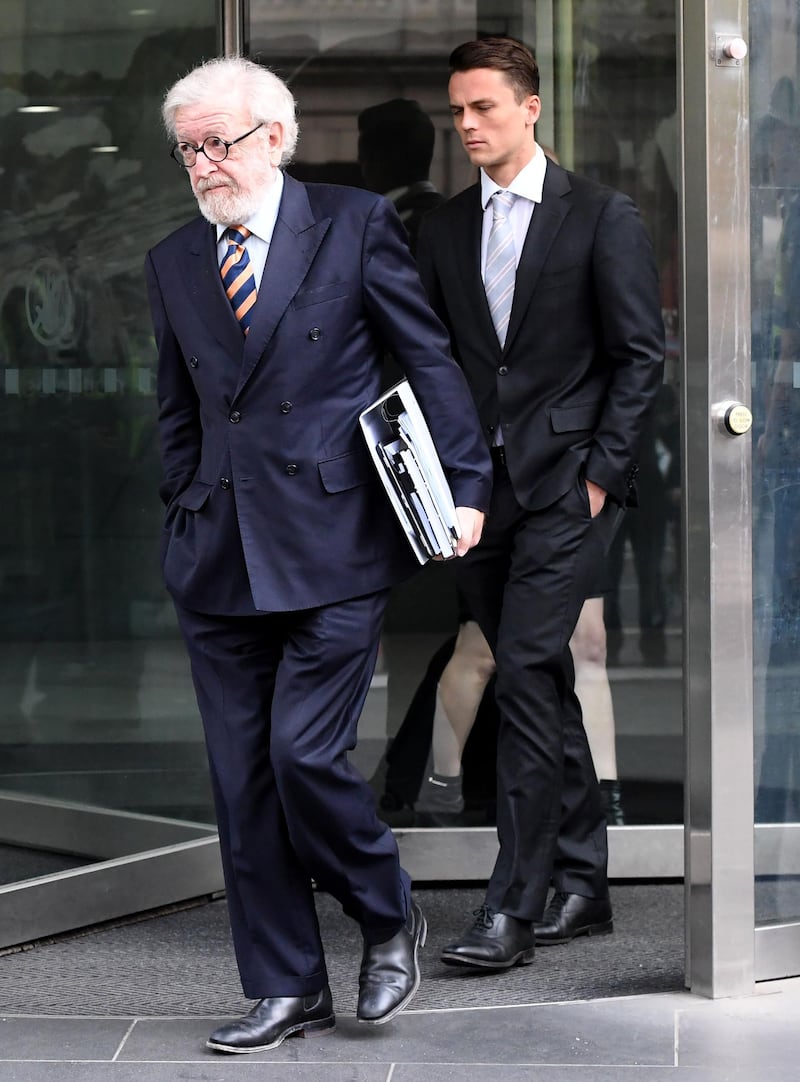Australian Cardinal George Pell, the most senior Vatican official to be charged in the Catholic Church sex abuse crisis, will face two trials on sex crime allegations spanning decades, a court heard on Wednesday.
Mr Pell appeared for an administrative first hearing in the Victoria state County Court, where he will be tried after a magistrate decided on Tuesday that he should face a jury. The magistrate dismissed around half the charges the cleric faced.
His lawyer Robert Richter said on Wednesday that he agreed with prosecutors to split the remaining charges into two trials.
The charges relating to Mr Pell's time as a priest in his hometown of Ballarat in the 1970s and those relating to his time as archbishop of Melbourne in the 1990s were "of a completely different nature" and "separated by 20 years", Mr Richter told Judge Sue Pullen.
Details of the charges and their number have not been made public.
Mr Pell also wanted the first trial to start soon for several reasons, Mr Richter said.
"Number one, my client is 76 years old, and number two, everyone has to get on with their lives," Mr Richter said.
Mr Richter also noted that one of the witnesses was 80 years old.
Mr Pell has taken leave from his Vatican job as Pope Francis's Finance Minister and plans to return to it if he is acquitted.
Prosecutor Mark Gibson anticipated that the prosecution would need three months to compile its case, but later described that estimate as "conservative", meaning prosecutors could be ready sooner.
Judge Pullen said, "I do think three months is a little excessive".
Read more: Vatican's Cardinal Pell pleads not guilty in sex abuse trial
Prosecution and defence lawyers agreed the two separate trials would take a total of between eight and 10 weeks.
Asked by Judge Pullen if Mr Pell could afford his defence, Mr Richter replied the cardinal had "no problem with funding".
Mr Pell was allowed to leave the court on bail ahead of his next administrative hearing on May 16. Judge Pullen rejected an application to excuse Mr Pell from attending that day.
Dozens of police linked arms to escort Mr Pell, wearing a dark suit, white shirt and a cleric's collar, through a media throng from the court to a waiting car.
Lawyers for Australia's highest-ranking Catholic have been fighting the allegations since before he was charged in Rome by summons last June.
When Magistrate Belinda Wallington asked Mr Pell on Tuesday how he pleaded, the cardinal said in a firm voice, "Not guilty". It was the first time after numerous court appearances that he had been required to enter a plea.
After Mr Pell was ordered to stand trial, Vatican spokesman Greg Burke said in a statement: "The Holy See has taken note of the decision issued by judicial authorities in Australia regarding His Eminence Cardinal George Pell. Last year, the Holy Father granted Cardinal Pell a leave of absence so he could defend himself from the accusations. The leave of absence is still in place."
Under his bail conditions, Mr Pell cannot leave Australia or contact prosecution witnesses, and must give police 24 hours' notice of any change of address.
Since Mr Pell returned to Australia from the Vatican in July, he has lived in Sydney and flown to Melbourne for his court hearings. His circumstances are far removed from the years he spent as the high-profile and polarising archbishop of Melbourne and later Sydney before his promotion to Rome in 2014.
The case places both the cardinal and the pope in potentially perilous territory.
For Mr Pell, the charges are a threat to his freedom, his reputation and his career. For the Pope, they are a threat to his credibility, given that he famously promised a "zero tolerance" policy for sex abuse in the church.





